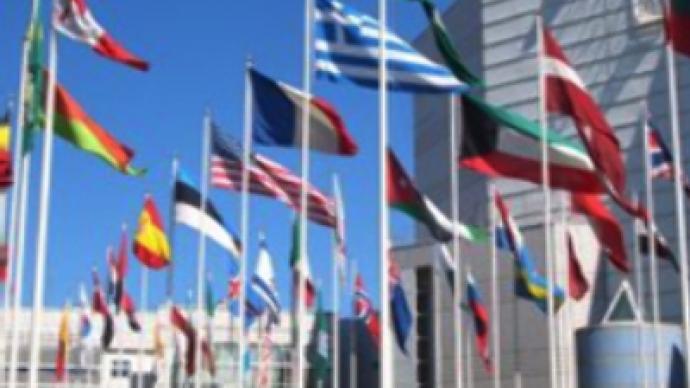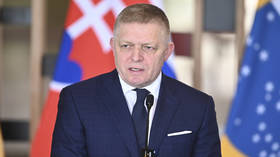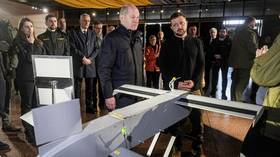Georgia aid ‘bad example for democracy’

Representatives of 67 states and institutions are discussing an aid package of $3.25 billion for Georgia following its conflict with Russia.
The funding, announced at the International Donors' Conference in Brussels, would go towards reconstructing the country's economy, social sector and infrastructure.
The International Donors' Conference pledges so far:
U.S.……………………………………………. $1 billion
IMF……………………………………………..$1 billion
Japan……………………………………..$200 million
Germany………………………………….$44 million
Sweden……………………………………$53 million
Bulgaria…………………………………….$670 000
TOTAL: US $2,297,670,000
According to the global corruption watchdog Transparency International, this is more than the Georgian government budgeted to spend in 2009. It is also the equivalent of almost $1000 for each of the country's residents.
The watchdog believes there are major accountability issues with the Conference. Tamuna Karosanidze, Transparency International Georgia’s executive director, thinks that there needs to be certainty that it will be well-spent.
“Allocating these huge sums behind closed doors on the basis of a secret document does not set a good example for Georgian democracy to follow,” he said. “If Georgia's citizens can have no say in how this money will be spent, democracy in Georgia will be weakened rather than strengthened. Aid will only be received positively in Georgia if Georgian citizens are confident that it will be well spent, which is something that only wide-spread civic involvement and transparency can achieve.”
The watchdog believes there are three major problems with the Conference. The main one is the lack of inclusiveness within the assessment process. Neither the Georgian parliament nor local civic organisations took part in the drafting of the Joint Needs Assessment.
There is still no information on whether the money donated to Georgia will be spent on affected regions within Abkhazia and South Ossetia. Tbilisi, as well as the EU, still considers these states to be part of Georgia. But they have declared themselves independent and their governments are vehemently opposed to Georgian intervention on their territories.
Secondly, the Joint Needs Assessment has not been released for public scrutiny. Despite the fact that this is the central document upon which donations will be based, it is unclear how the funds would be spent. Of most concern, according to Transparency International, is the $700m intended for the social sector.
Thirdly, the fact that the conference is taking place behind closed doors is seen as an accountability and transparency problem.
“Despite repeated requests, no Georgian representatives apart from the government's small team, and no independent international observers, will be allowed to follow conference proceedings,” Karosanidze pointed out.
The International Donors' Conference
The conference is co-hosted by France, which currently holds the European presidency, and the Czech Republic, which has been selected to take over the post in 2009. World Bank and UN representatives are co-chairing the conference.
“The purpose of the conference is to mobilise a critical mass of external assistance to support the country in the reconstruction of damaged infrastructure, reintegration of internally displaced people and in accelerating Georgia's recovery from the impact of the August 2008 conflict on its economy,” the European Commission said on its website.
Before going to Brussels, the Georgian Foreign Minister, Eka Tkeshelashvili, said that the conference will not only be beneficial for Georgia's financial well-being, but also for the country's international outlook. Apart from donations, trade and visa issues are also expected to be discussed.
According to the European Commission President Jose Manuel Barroso, the conference is aimed at helping Georgia reach stability following the conflict and restructure its democratic and economic systems.
Meanwhile, French Foreign Minister Bernard Kouchner said: “It's a matter of solidarity to provide long term assistance. We want to be seen that we are alongside Georgia, that is the point of this conference.”
Russia has not been invited to participate in the conference, highlighting the newly-formed chasm within the relationship between the EU, the U.S. and Russia.
US leads $4.5 billion “support package” for Georgia
EU keeps Russia on waiting list
Council of Europe investigates S. Ossetia crisis












